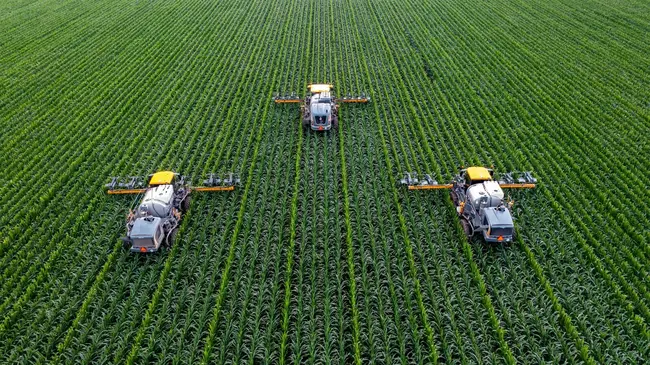The quest for the Nigeria Government to develop a national climate smart food production calendar to boost sustainability was top of discussion at the .10th Regional Food Science and Technology Summit/NIFST Day 2024 celebration held in Lagos, South west Nigeria..
Speaking at the event, with the “Attaining Sufficient, Safe and Healthy Food for Nigerians Through Food Science and Technology”, Managing Director, UAC Foods Ltd, Mr Oluyemi Oloyede, said the country could no longer afford to plant only when it was rainy season, and stressed the need for development of effective systems for climate resilient crops varieties and animals due to global warming and climate change.
He said it was necessary to build data from weather forecasting, early warning signs of flooding to effectively and efficiently manage the impacts of climate change on food and livestock production.
“Nigeria has 34 million hectares of arable land where we produce some staple foods in large quantities and it must amplify and prioritise it to meet national requirements and export.
“We are a large producer of cassava, yam, cocoyam, beans, melon seeds and we are among the largest producers of groundnuts, maize, rice and plantain.
“Instead of trying to compete in wheat or sugar or milk, at least for a start, we should first scale where we have competitive advantages.
“We need to increase acreage, support mechanisation, release improved seeds that will increase yields, subsidise scaled production and use some of these as substitutes where we do not have competitive advantage, “he said.
He also stressed the need to boost nutrition in children and young adults, noting that 32 per cent of children under five in Nigeria were malnourished.
Oloyede noted that nowadays, most Nigerian households considered price, taste, sufficiency over and above nutrition, adding that this was responsible for the quality of food that were available in our markets and shelves.
Citing an example, he said an average consumer wanted protein such as cow milk but because of the challenges of accessibility, the consumer had to step down from skimmed milk or full cream, to non-dairy creamer, explaining that consumers now sacrificed nutrition ( protein levels as high as 30 per cent) for affordability (protein levels as low as two per cent).
“We must view the current global, national and sub-national challenges as opportunities to develop plans to guarantee food security at all levels and this is everyone’s responsibility, including government and donor agencies.
“As a country, we cannot produce all foods, no country in the world does, hence we need to decide on what is to be produced and exported. We must operate an open market that allows us to export and import. Nigerians need to stop seeing imports as evil, especially when we are battling with food inflation and other countries are able to produce these foods cheaper,” he said.
The News Agency of Nigeria (NAN) reported that NIFT also held an award ceremony and inter-school debate competition for secondary school students.





